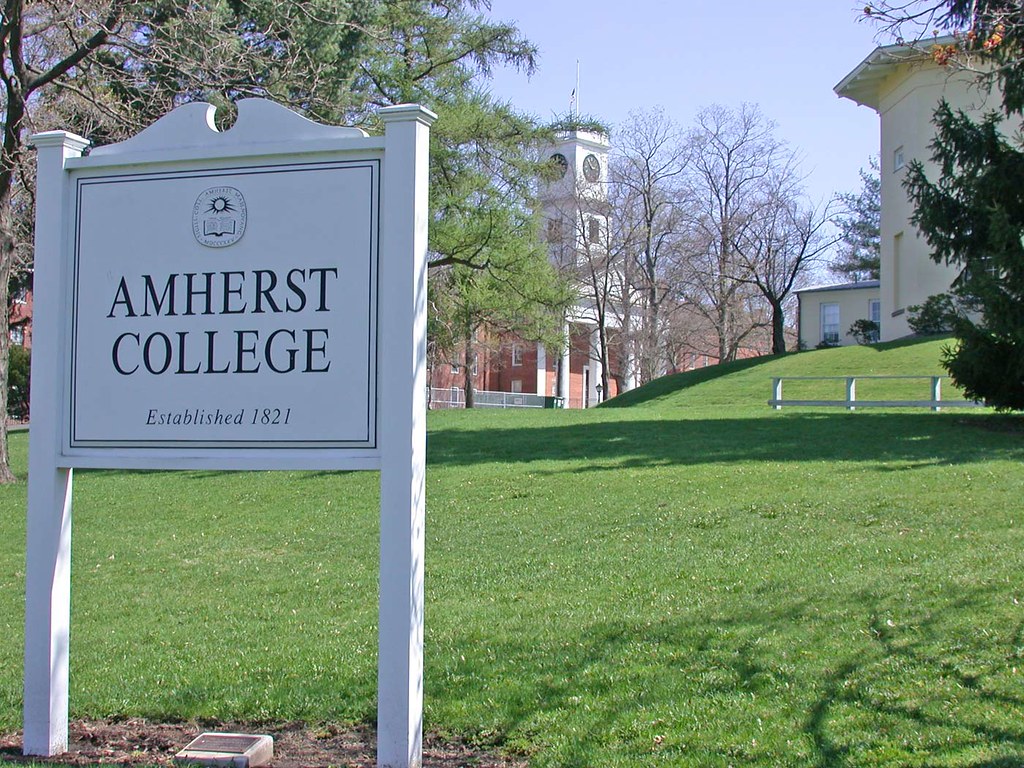Amherst College Files Amicus Brief With Supreme Court Supporting The Use Of A “Race-conscious” Admissions Process

Photo: Flckr.com. Creative Commons
Source: Amherst College News
Amherst College has filed an amicus curiae brief with the Supreme Court of the United States in support of Harvard College and the University of North Carolina and the legality of a “race-conscious” admissions process. In doing so, Amherst reinforced its steadfast commitment to the educational benefits of diversity and the inclusion of race as one component of many in its holistic consideration of each admission application.
Amherst initiated and coordinated the brief, which details the “compelling interest” of a racially diverse student body for liberal arts colleges, consistent with the Supreme Court’s decision in the landmark Grutter v. Bollinger case nearly 20 years ago. Thirty-two peer institutions joined Amherst as signatories to the brief.
“Each college deliberately seeks to enroll and house on campus a highly diverse group of students—from different states and countries; from urban and rural backgrounds; homeschooled, private-schooled, and public-schooled; with differing economic circumstances; with different kinds of experiences, talent, or athletic ability; students who will be the first in their families to go to college and, among some of Amici, students with family connections to the schools,” reads the brief. “Studies consistently show that diversity–including racial diversity–meaningfully improves learning experiences, complex thinking and non-cognitive abilities. Diversity also generates pedagogical innovations and decreases prejudice. These benefits are especially pronounced at liberal arts colleges and small universities, where smaller class sizes lead to greater engagement among diverse students.” The brief also includes a stark prediction: “A decision overturning Grutter … would deal a powerful blow against Amici’s effort to assemble diverse student bodies.”
“Prohibiting the consideration of race in admissions decisions would result in greater inequity, both on college campuses and in American society — and it would substantially impair the ability of institutions to educate students to become the citizens and leaders that a diverse democracy requires,” said Michael A. Elliott, president of Amherst. “While more work remains before us, Amherst has made great strides in recent decades to enroll, educate and graduate a highly diverse student body. We see evidence everywhere of how our small, liberal arts community has benefited enormously from the range of opinions, experiences and interests represented by the individuals who are a part of our community. Our admissions practices have served our students well and, as those students graduate into the wider world, served the public at large. Therefore, we felt that it was critical to express our full support of a holistic admission process, including the holistic consideration of race and ethnicity as one of many factors, to the Court, as well as the general public.”
For many years, Amherst has considered each applicant’s academic accomplishments, extracurricular activities, family background, potential and race, among other factors, in assembling what is widely acknowledged as one of the most diverse student bodies among selective American colleges and universities. This year, in fact, 51% of the entering class self-identifies as domestic students of color, and an additional 12% are international. Achieving this level of diversity is unprecedented, not only at Amherst but also among its peer institutions. Additionally, last October the College eliminated the use of the legacy preference in admissions.
“When the admission committee reviews applications, we consider each student as a whole student, with all of their identities, as we seek to build a class that will live and learn together,” said Matthew L. McGann, Dean of Admission and Financial Aid. “In American society, race remains as salient as ever, and denying students an opportunity to share parts of their identity denies them an opportunity to be seen as their whole, true selves.”
Amherst College prepares students to use ideas to make a difference in the world. Since its founding, in 1821, in Western Massachusetts, Amherst has demonstrated steadfast confidence in the value of the liberal arts and the importance of critical thinking. Today, its financial aid program is among the most substantial in the nation, and its student body is among the most diverse. Small classes, an open curriculum and a singular focus on undergraduate education ensure that leading scholars engage daily with talented, curious students, equipping them for leadership in an increasingly global and complex world.
